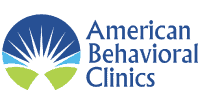Suicide Prevention: Warning Signs and Keys to Prevention
American Behavioral Clinics is focused on the prevention of suicide. We use techniques to help individuals who are fighting against suicidal urges. We offer help to adults and adolescents.
Preventing Suicide
Warning signs aren’t always obvious. Often it is trying to keep your suicidal thoughts and feelings secret. A few typical warning signs of suicide or suicidal thoughts may include:
- Talking about suicide, including making such statements as “I’m going to kill myself,” “I wish I was dead” or “I wish I hadn’t been born”
- Seeking the means to commit suicide, such as getting a gun.
- Feeling trapped or hopeless about a situation
- Engaging in risky or self-destructive behavior, such as using drugs or drilling recklessly
- Giving away belongings or getting affairs in order
- Saying goodbye to people as if they won’t be seen again
Suicide and Adolescence
“Hidden epidemic” – Suicide is the third foremost cause of death for adolescents 15-24 years old.
Some young people will send out patterns of warning signs in advance such as:
- Making self-deprecating comments;
- Loss of interest in their usual activities and friends;
- Loss of interest in their own appearance;
- Morbid preoccupation with depressing things (listening to music with lyrics about death or hopelessness and focusing on negative happenings);
- Apathetic attitude – stating that nothing matters;
- Low energy, feelings of fatigue;
- Changes in eating and sleeping habits;
- Inability to make decisions;
- Feeling unable to control one’s life events;
- Rapid mood swings; a feeling that no one understands and that everyone is out to get them;
- Recent loss of a significant other (it could be a public figure or boyfriend or girlfriend);
- Psychotic behavior (hallucinating or delusional thinking);
- Internalized or explosive anger;
- Suddenly appearing happy and relaxed after a bout of depression. This could indicate a decision has been made to act out the idea of suicide;
- Giving away personal possessions, although this happens less than is commonly thought.
(This kind of behavior is probably due to the impulsiveness of teenagers. Their suicide attempts tend to be spur-of-the-moment responses to feelings of being completely overwhelmed and unable to cope, or a desire to punish a significant person such as a parent, friend, or love object.); - Daredevil behavior such as playing chicken in cars, indiscriminate drinking or drug use;
- An excessive number of events that appear to be accidents;
- Talking about suicide or writing about suicide in school themes or journals;
- Making threats of suicide to control someone else’s behavior such as parents or friends;
- Purchase of guns, rope, knives, drugs, or other items of self destruction;
- Self-mutilation such as superficial wrist-cutting or cigarette burns on arms;
- A history of prior attempts.
It is important for people who work with adolescents to familiarize themselves with these warning signs and to be alert to the appearance of any combination of these signs. If any of these signs are recognized, the individual should be confronted directly and urged to talk about these feelings of despair. Some people use a contractual technique to encourage the suicidal person to make a commitment not to harm himself. In any case, it is important for the suicidal person to be reassured that you care very much about what happens to him and that he can be helped. Keep in mind that most suicidal people really don’t want to die.
Hotlines for Immediate Help
911
Crisis Line Milwaukee County Behavioral Health Division
Mental Health Association in Milwaukee County
24 hours / 7 days
(414) 257-7222
(414) 257-6300 TDD
The Ozaukee County Hotline: COPE Services
24 hours / 7 days
(262) 377-COPE
(262) 377-2673
Teenline / Home Alone
(262) 377-7786
Senior Support Line
(262) 377-7786
211 – First Call For Help Mental Health Association in Waukesha County: A United Way Agency
24 hours / 7 days
(262) 547-3388 or 211 TTY Accessible
Existing Patients and New Patients, Call us to schedule an appointment, get a prescription refill or just to ask a question:
New Patients ONLY - Want to contact us through a form? CLICK HERE to fill out our contact form.





